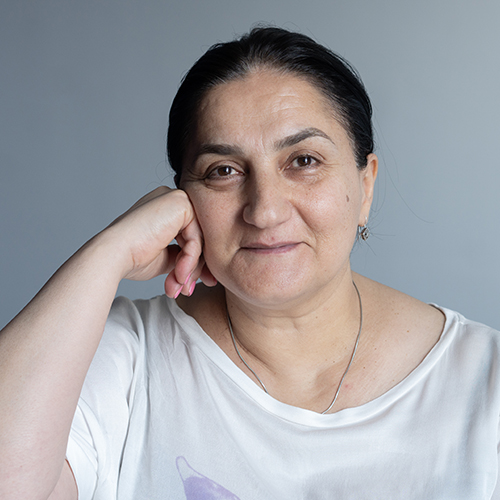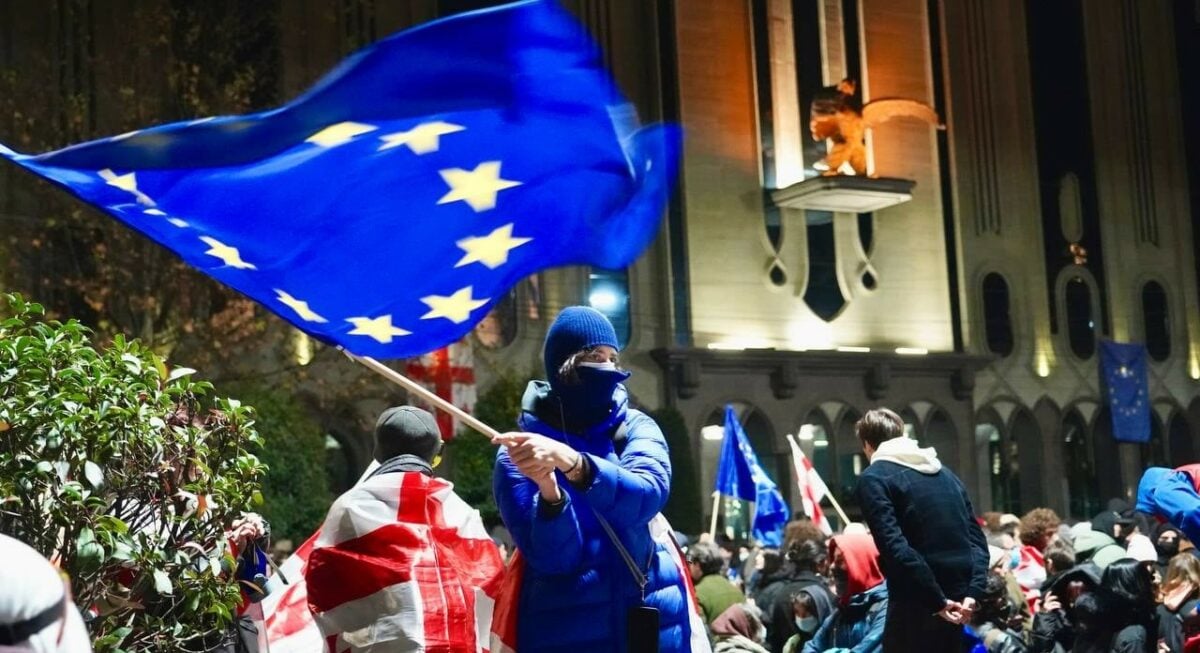The President of Georgia, Salome Zurabishvili, stands up from her seat and approaches US President Donald Trump, sitting one row ahead. She extends her hand to him, and he shakes it while exchanging a few words. From the movement of her lips, it is read, “Georgia.”
This excerpt is from the live broadcast of the reopening of Notre Dame Cathedral in Paris on December 7. A handshake and photo opportunity with prominent figures convey a significant message. For a TV journalist, this moment provides a unique shot, especially if he seeks to contrast his coverage with others reporting on the Tbilisi demonstrations in a similar way as they have done in recent days.
On December 7, a Saturday, and December 8, a Sunday, the news channels of our TV stations did not cover these events. On the same day, the commentator briefly mentioned the demonstrations in Tbilisi in the Public Company’s “News.” They only mentioned that Salome Zurabishvili had met with the President of Ukraine, Volodymyr Zelensky. No footage from this meeting or Tbilisi was shown. Our Public TV company and others reported on the developments in Tbilisi in a notably diplomatic manner.
We have been following the public channel’s main edition of “News” since November 28, when the Prime Minister of Georgia announced that the country would not proceed with EU negotiations until 2028. That important announcement was not addressed separately during the program; it was presented in the international news and other events abroad. One day later, on the 29th of the month, there were clashes between the police and protesters in Tbilisi. The Public TV covered them only in the international news section, in frame-and-speech format. On November 30 and December 1-9, “News” did not cover the events in Tbilisi in a separate report.
Even if the Public Television Company does not have a reporter in Tbilisi, couldn’t it send a filming team? Additionally, wasn’t it possible to reach out to Georgian colleagues to find an impartial analyst or political scientist, whether Georgian or Armenian, who could provide information on-site? Finally, couldn’t we invite an analyst to Petros Ghazaryan’s booth to discuss the current situation in Georgia and its potential impact on Armenia and the region?
Petros hosted a Georgian guest, Johnny Melikyan, on October 31—three to four days after the parliamentary elections in Georgia. At that time, Kobakhidze had not yet announced the termination of negotiations with the EU. Petros began the interview with Melikyan by noting that prior to the elections, there had been dire predictions of potential clashes and violence. However, he emphasized that, fortunately, the elections had concluded without any incidents.
In contrast, Public Radio “Radiolur” provided accurate coverage of the Georgian developments, thanks to its correspondent in Tbilisi. “Radiolur” is perhaps the only media outlet that consistently followed the events unfolding in Tbilisi.
Georgia is our immediate neighbor, yet we observe Georgian post-election developments as distant friends, passively listening without truly understanding what is happening.
We found media photos taken at the scene on Civilnet, but that was all. There were no live interviews, surveys, or additional exclusive information.
Although there were live broadcasts available online, they appeared to serve more self-interests than informative purposes. The website 168.am offered the opportunity to follow the events unfolding on December 1 in real time, presenting the information without any commentary.
While there were comments during the online morning broadcasts, they were exclusively in Georgian. What percentage of Armenians understand the Georgian language?
On December 3, Prime Minister Irakli Kobakhidze announced that the fourth revolution in Georgia had failed. Is that true? Anti-government demonstrations persist in Tbilisi.







